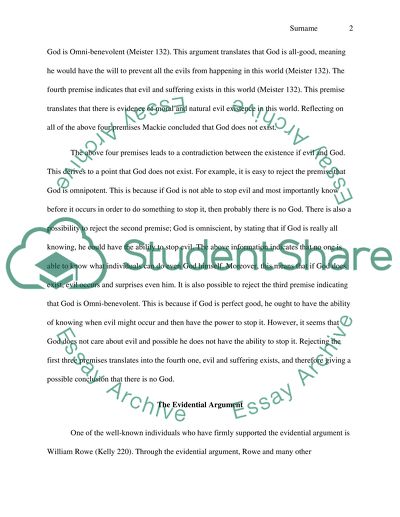Cite this document
(“The Logic and Evidental Problem of Evil Essay Example | Topics and Well Written Essays - 1000 words”, n.d.)
Retrieved from https://studentshare.org/religion-and-theology/1398323-philosophy
Retrieved from https://studentshare.org/religion-and-theology/1398323-philosophy
(The Logic and Evidental Problem of Evil Essay Example | Topics and Well Written Essays - 1000 Words)
https://studentshare.org/religion-and-theology/1398323-philosophy.
https://studentshare.org/religion-and-theology/1398323-philosophy.
“The Logic and Evidental Problem of Evil Essay Example | Topics and Well Written Essays - 1000 Words”, n.d. https://studentshare.org/religion-and-theology/1398323-philosophy.


